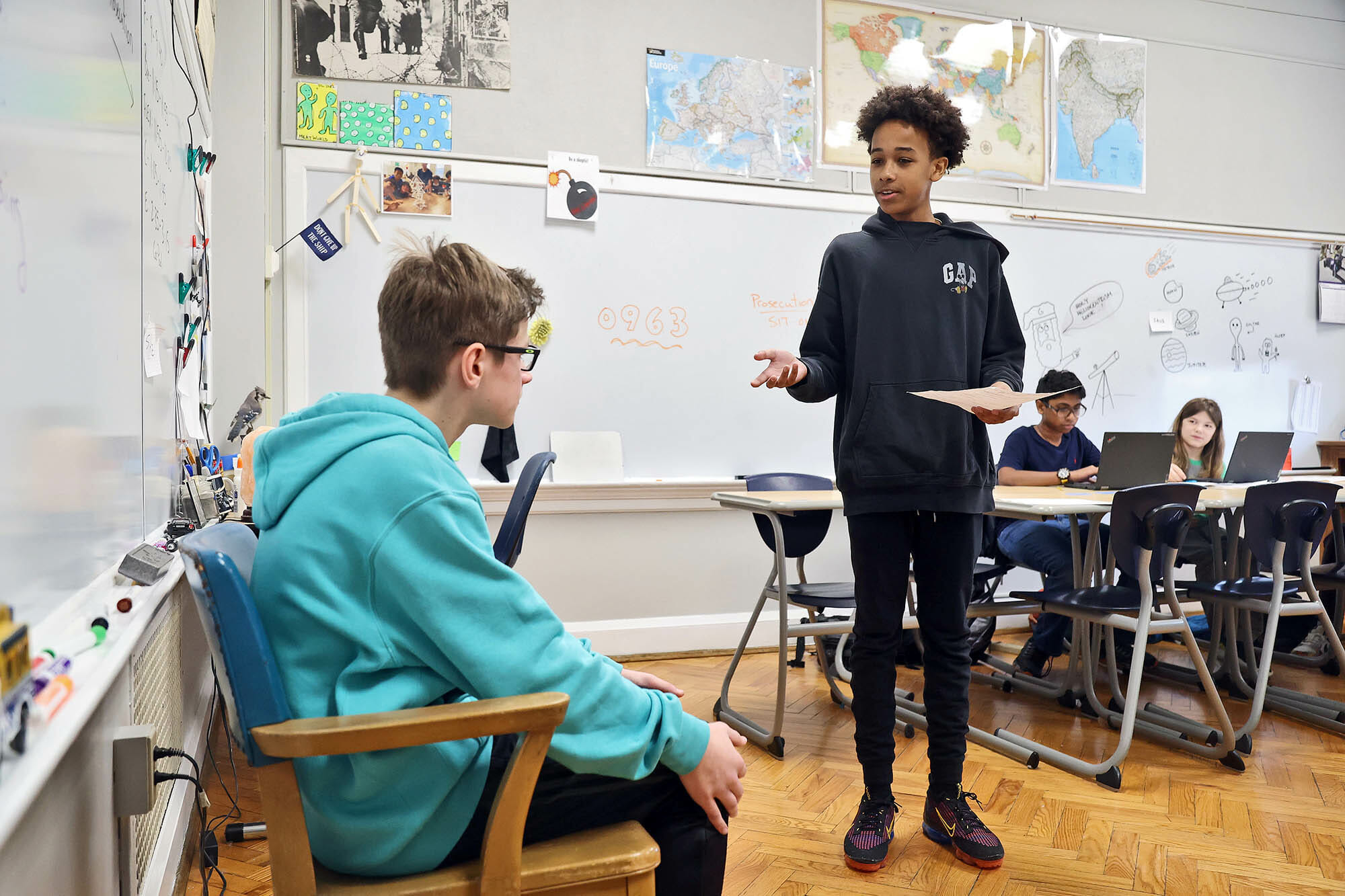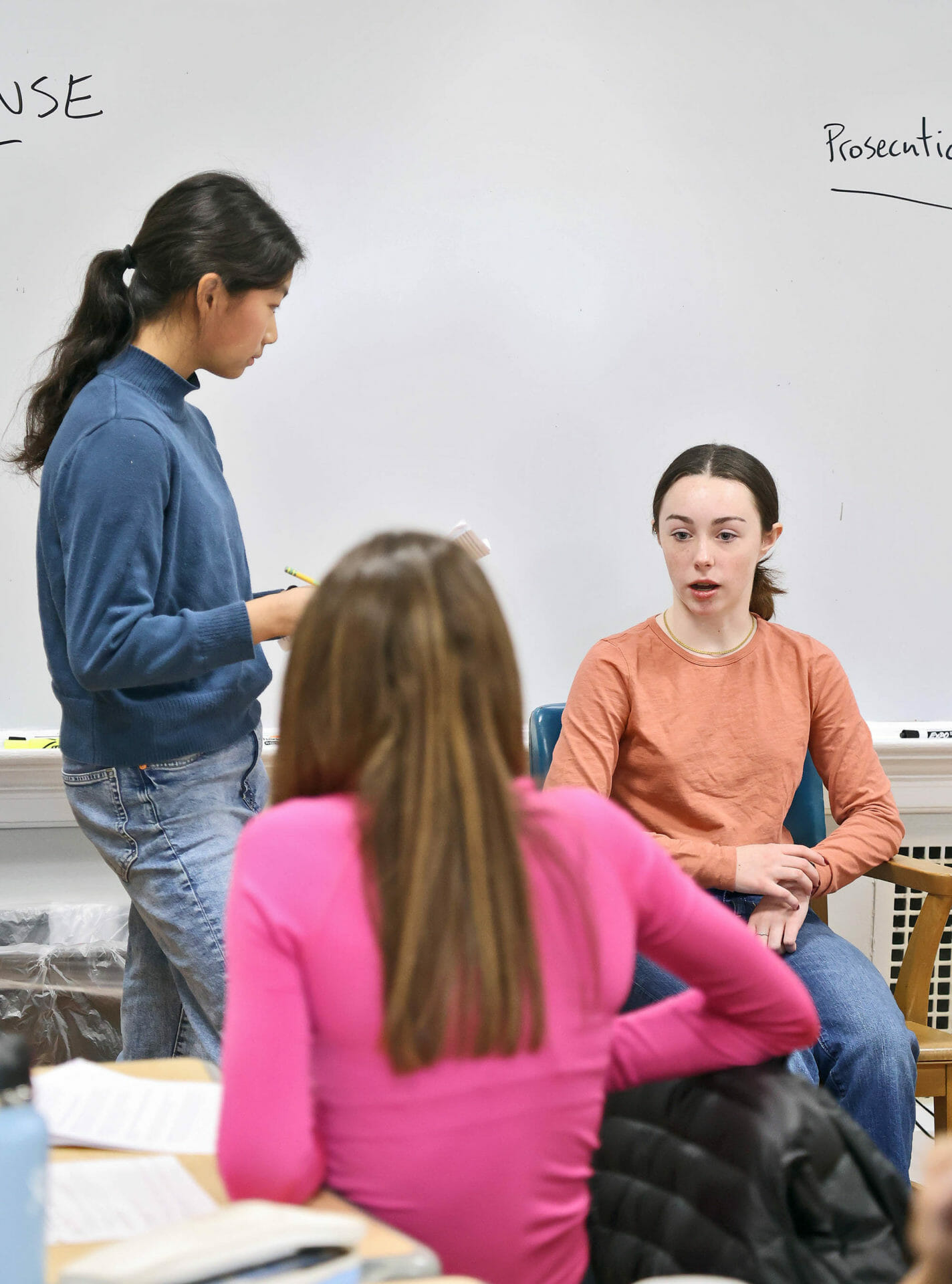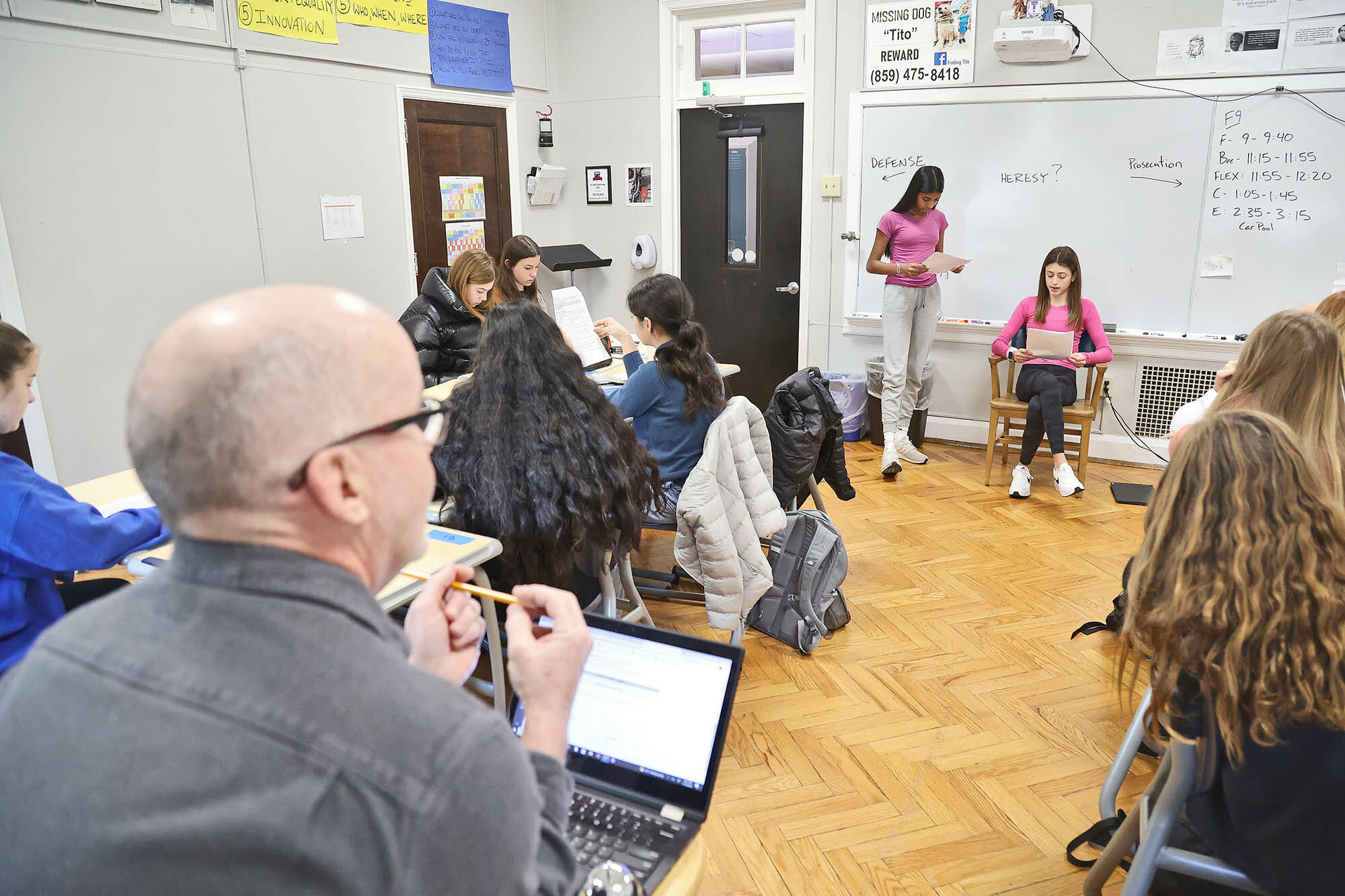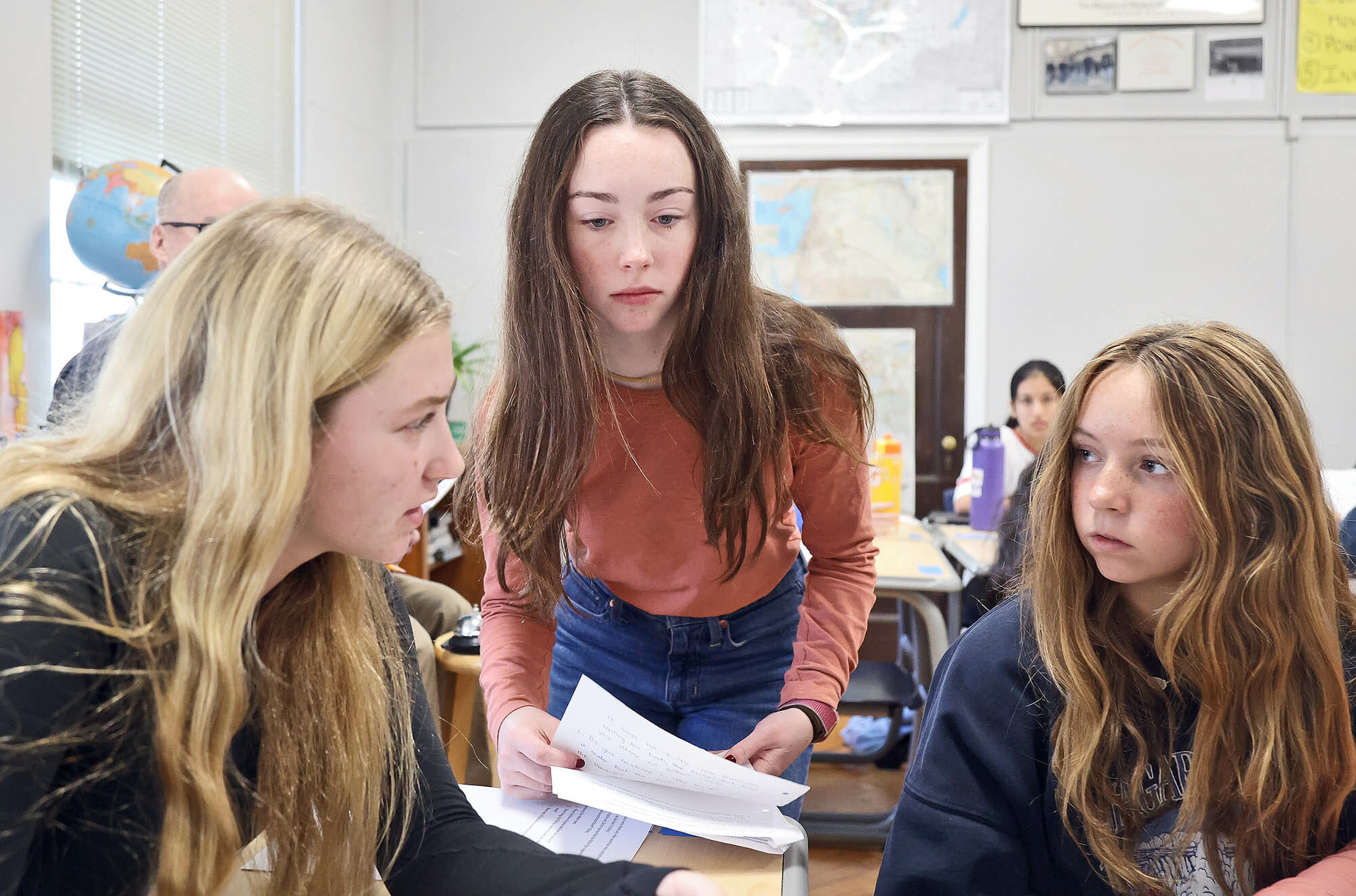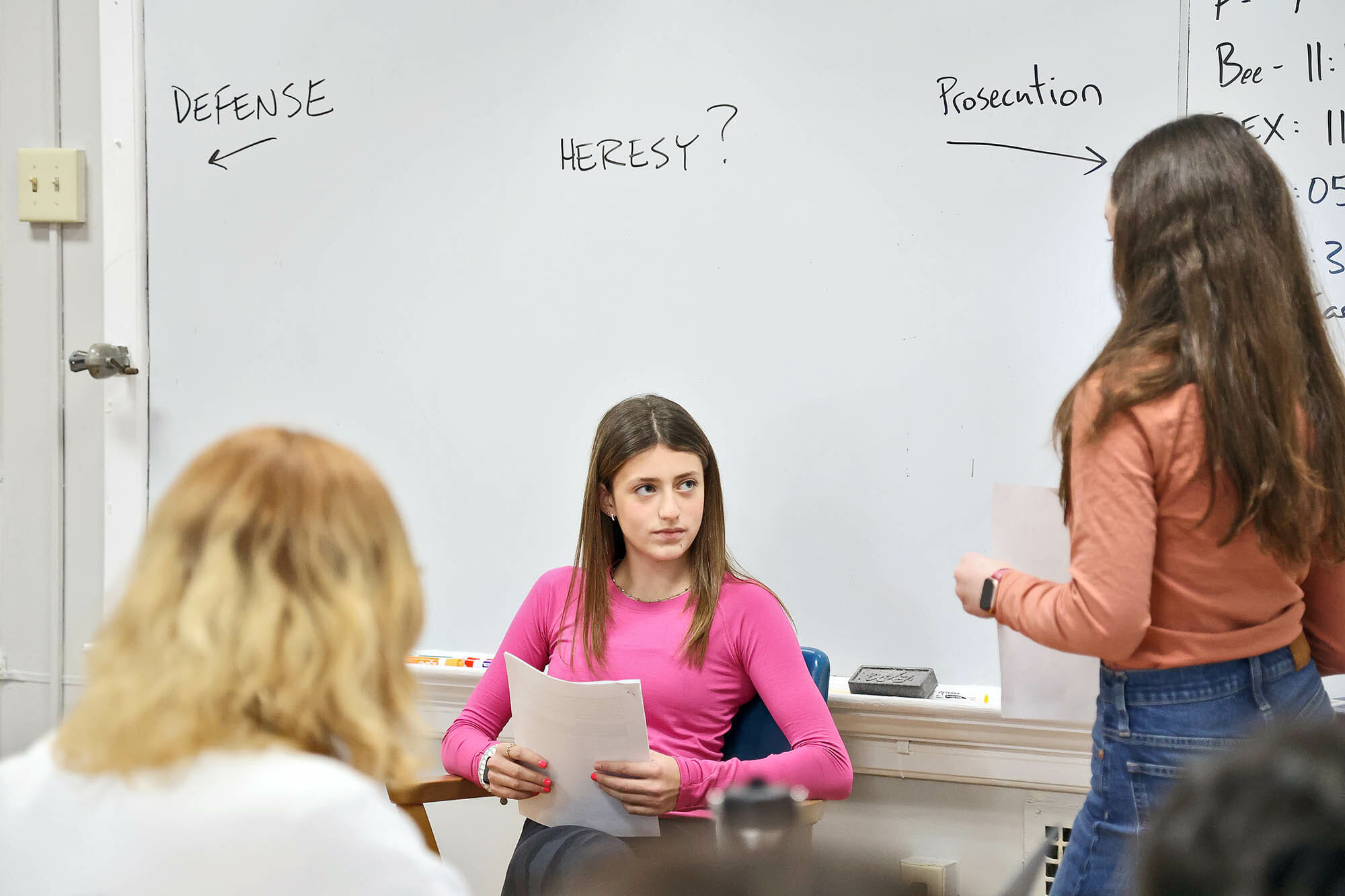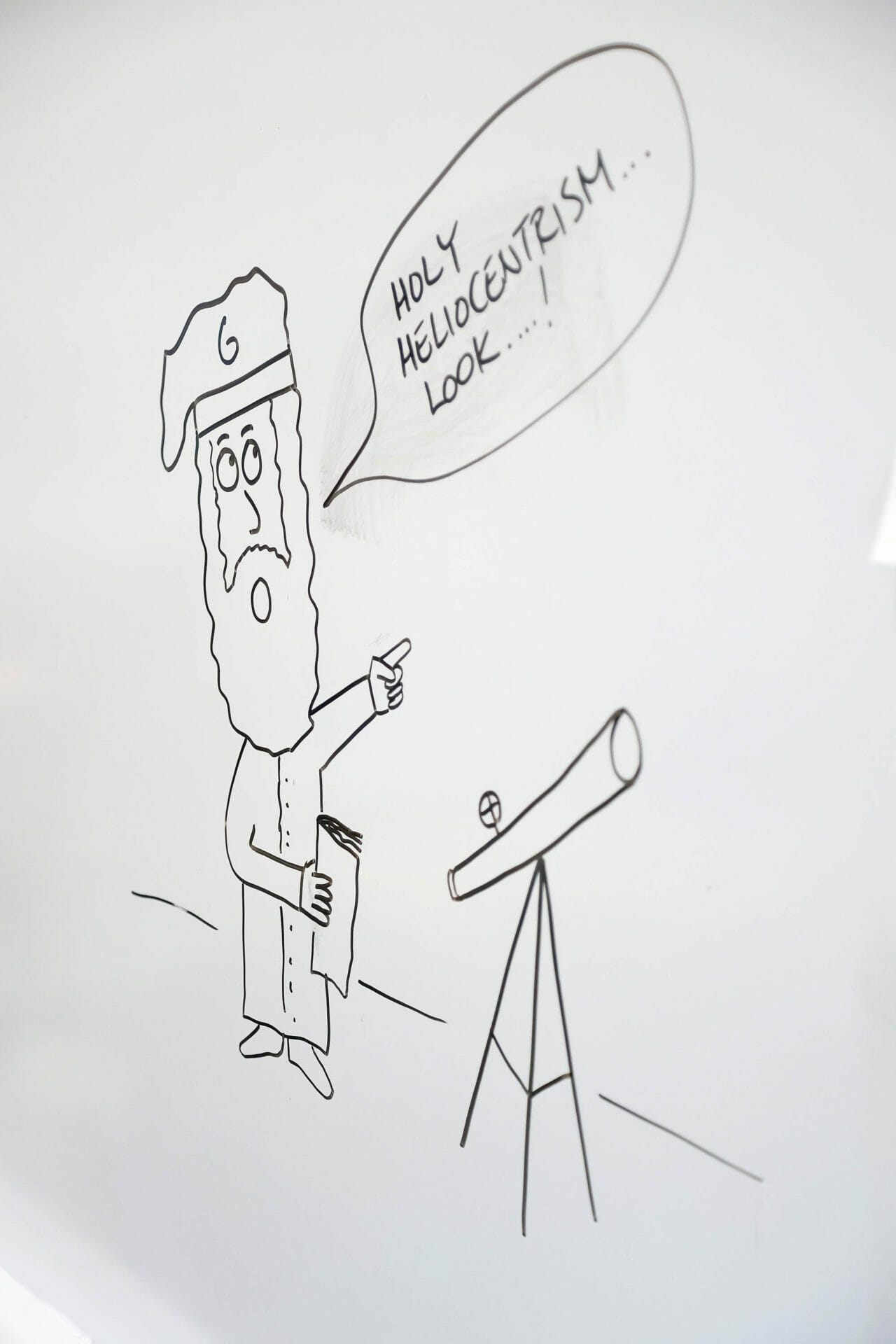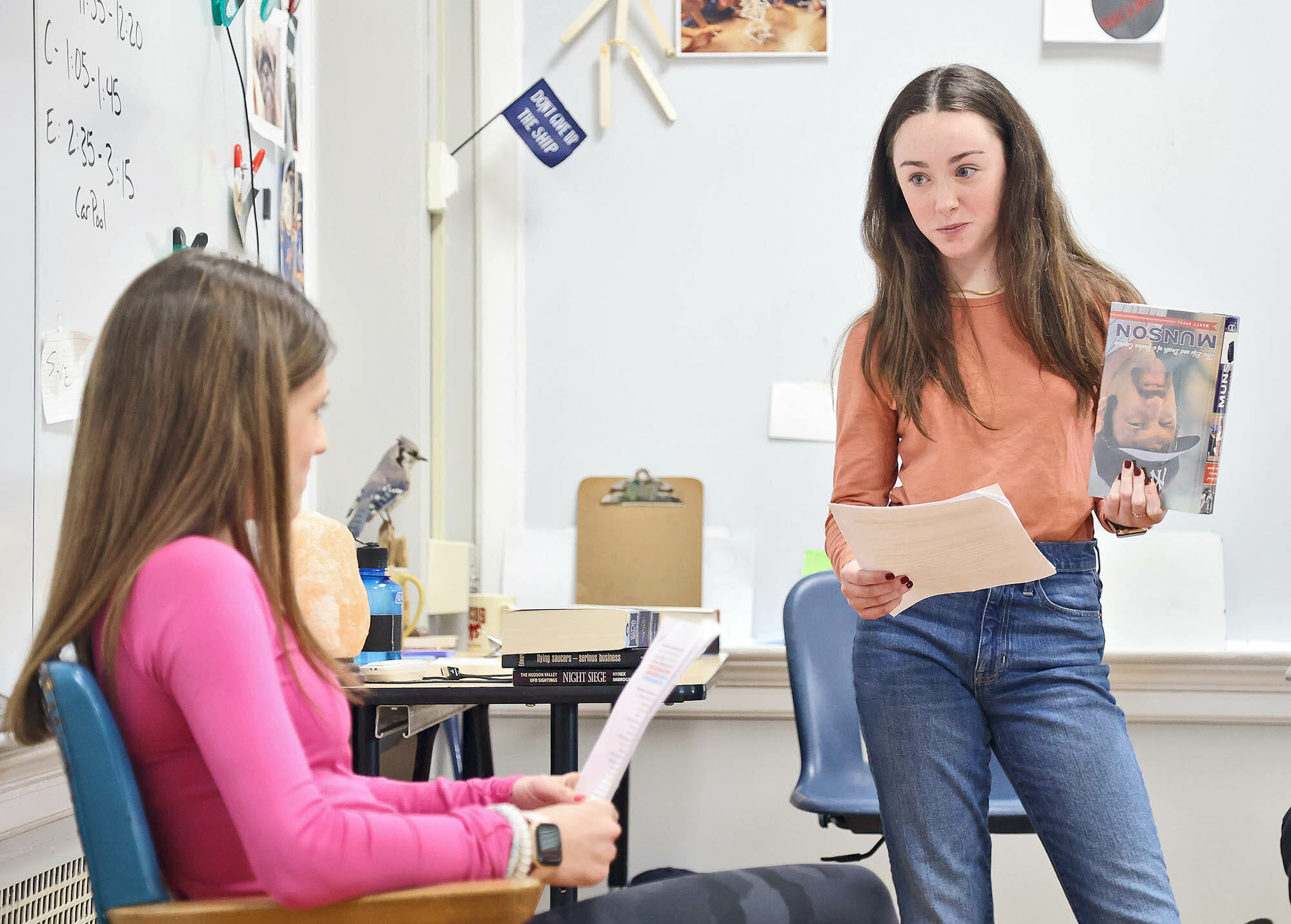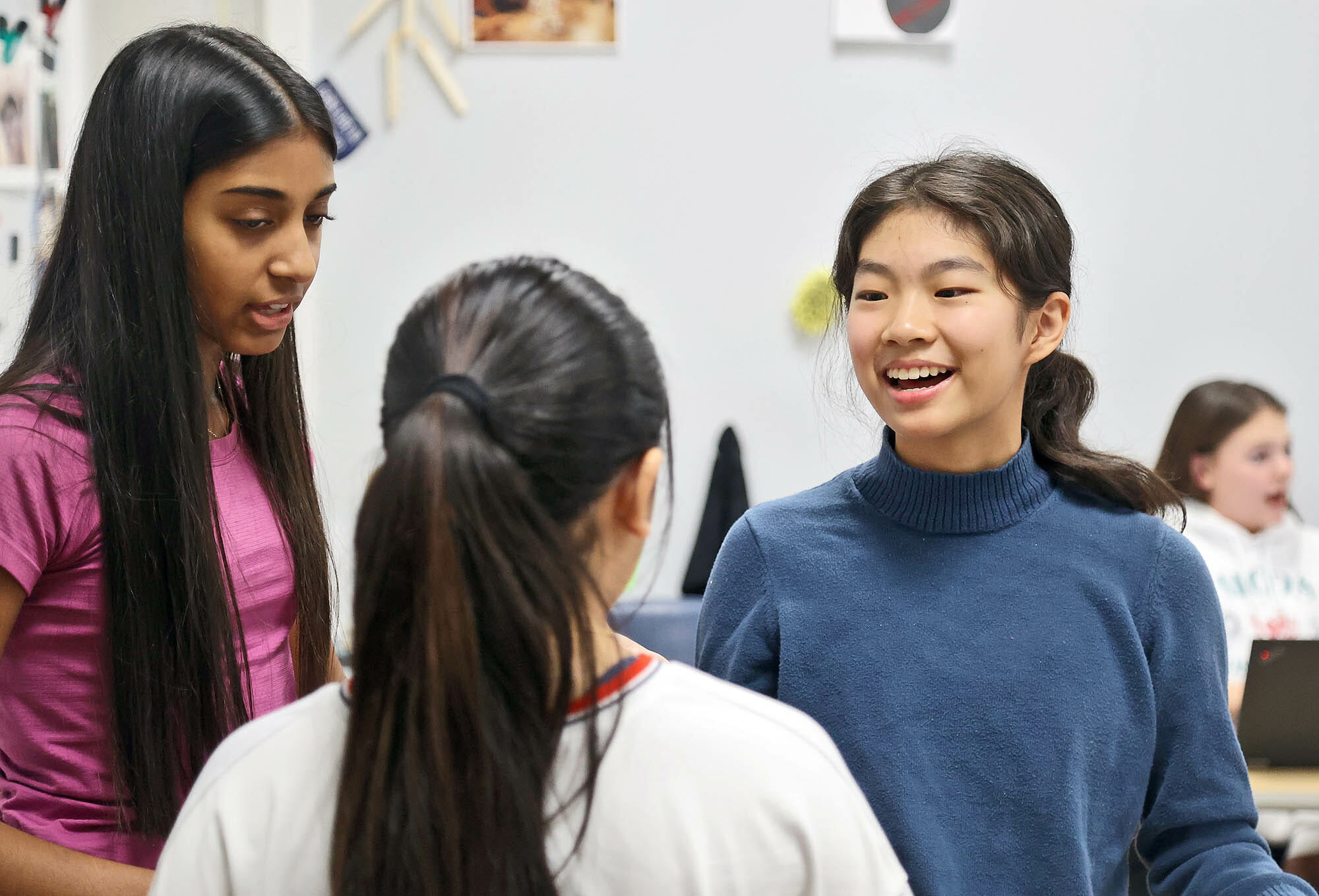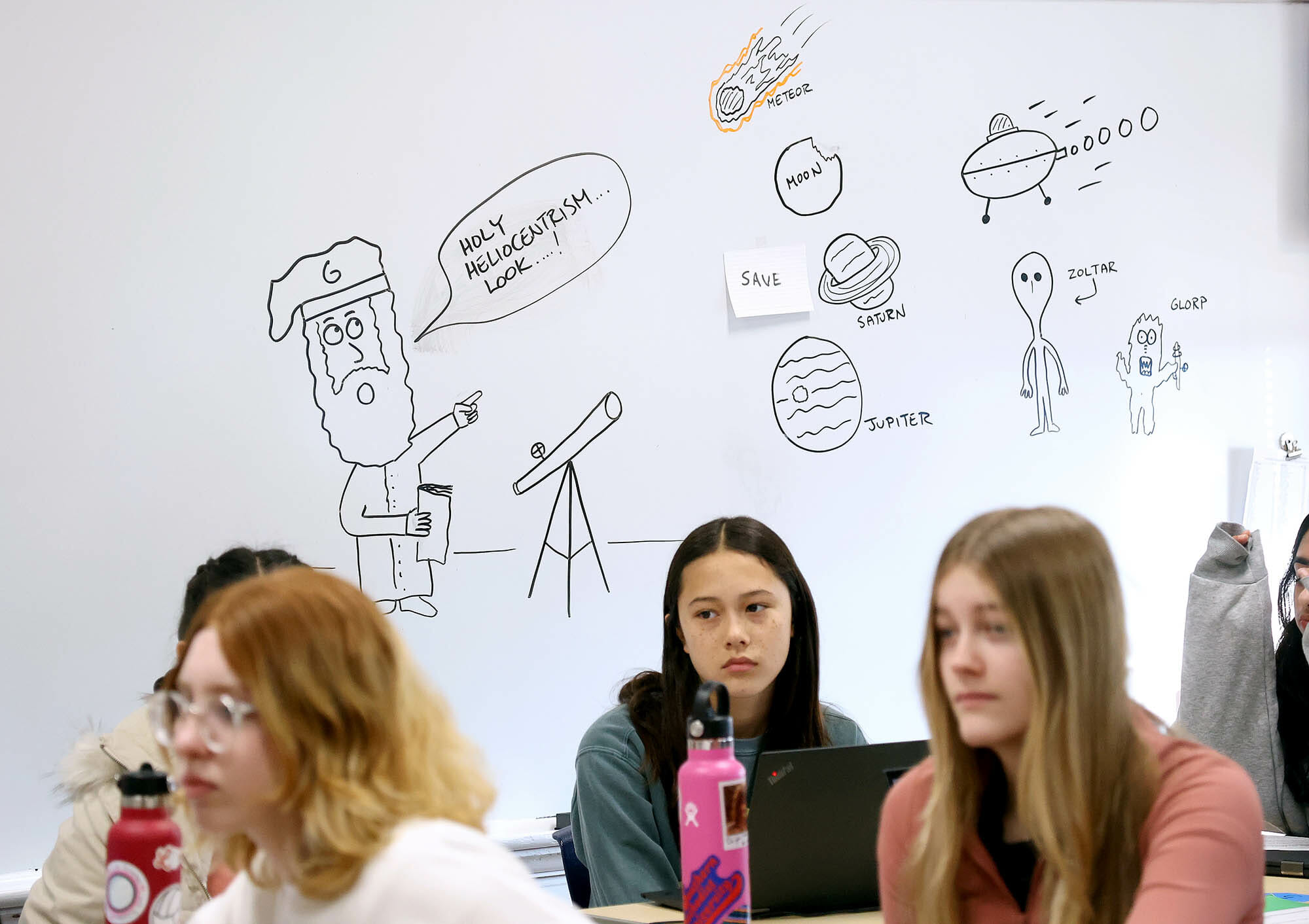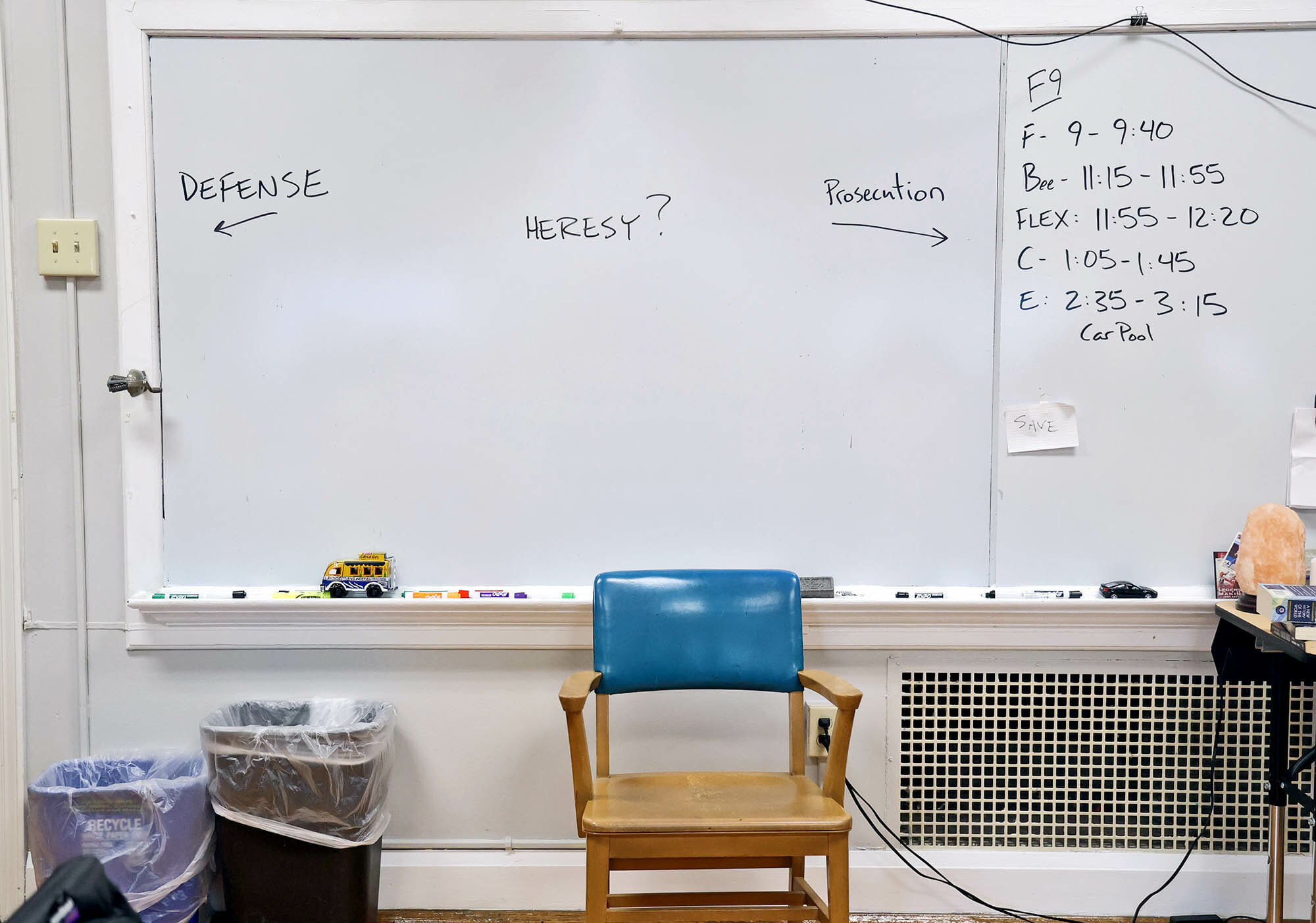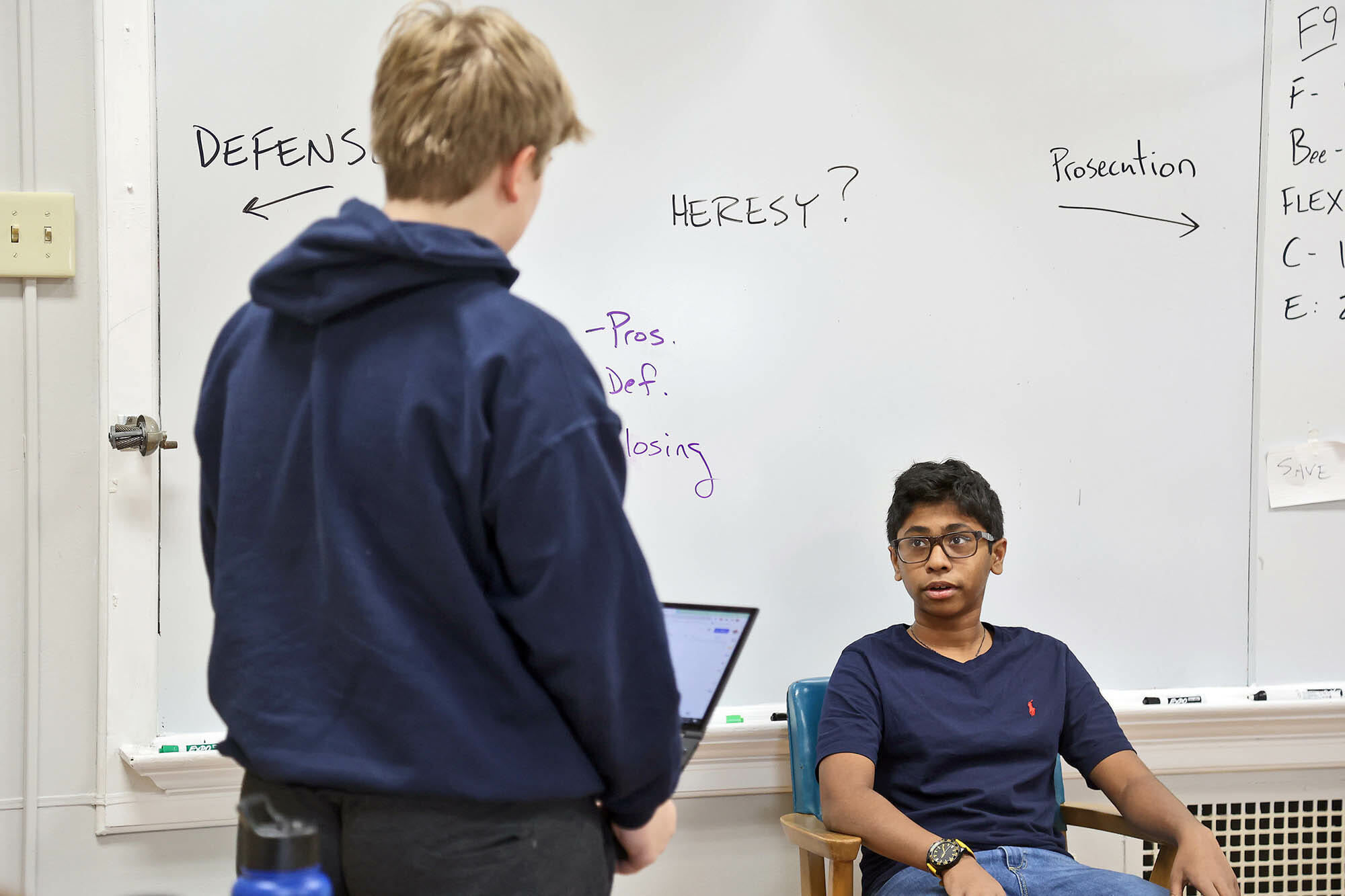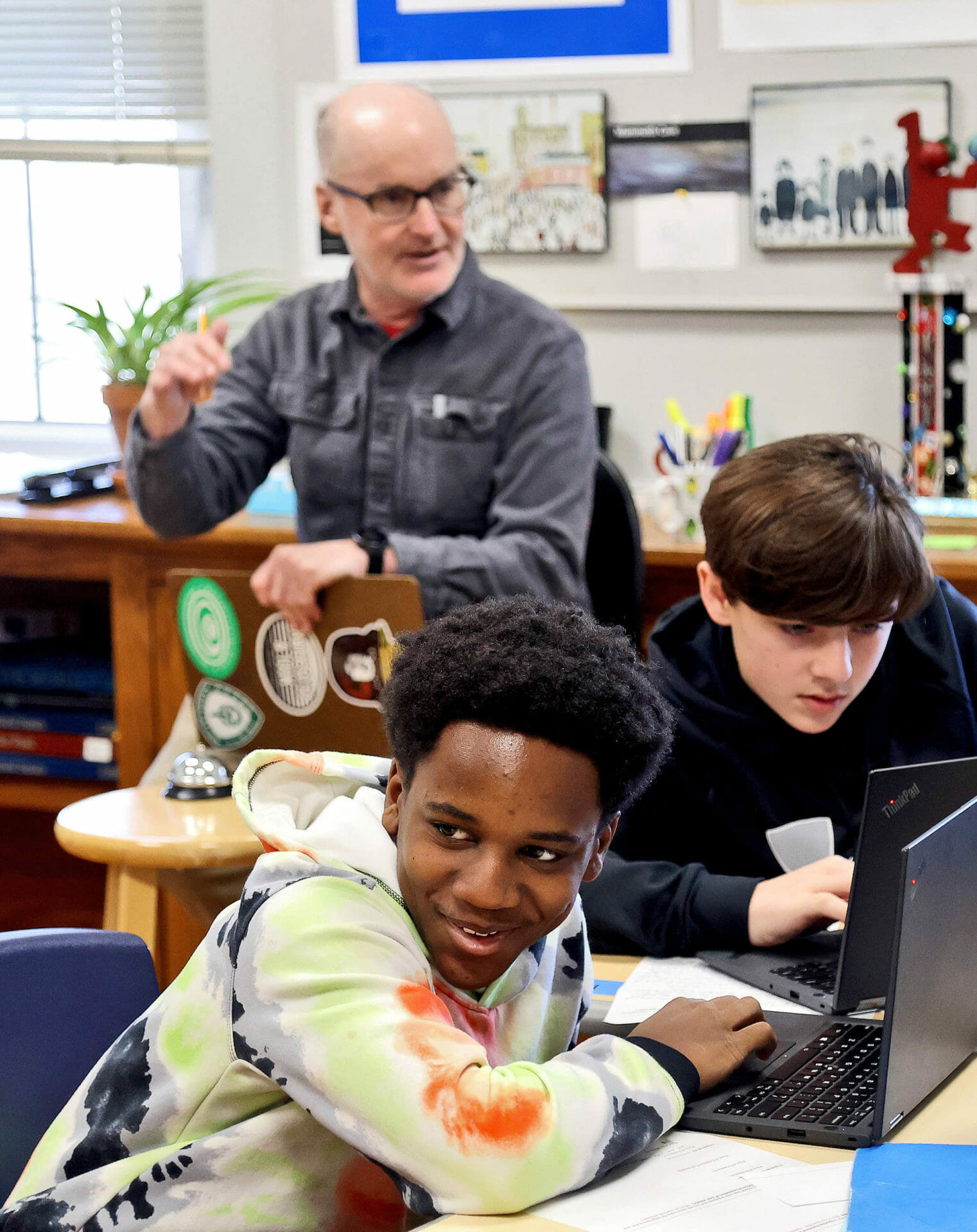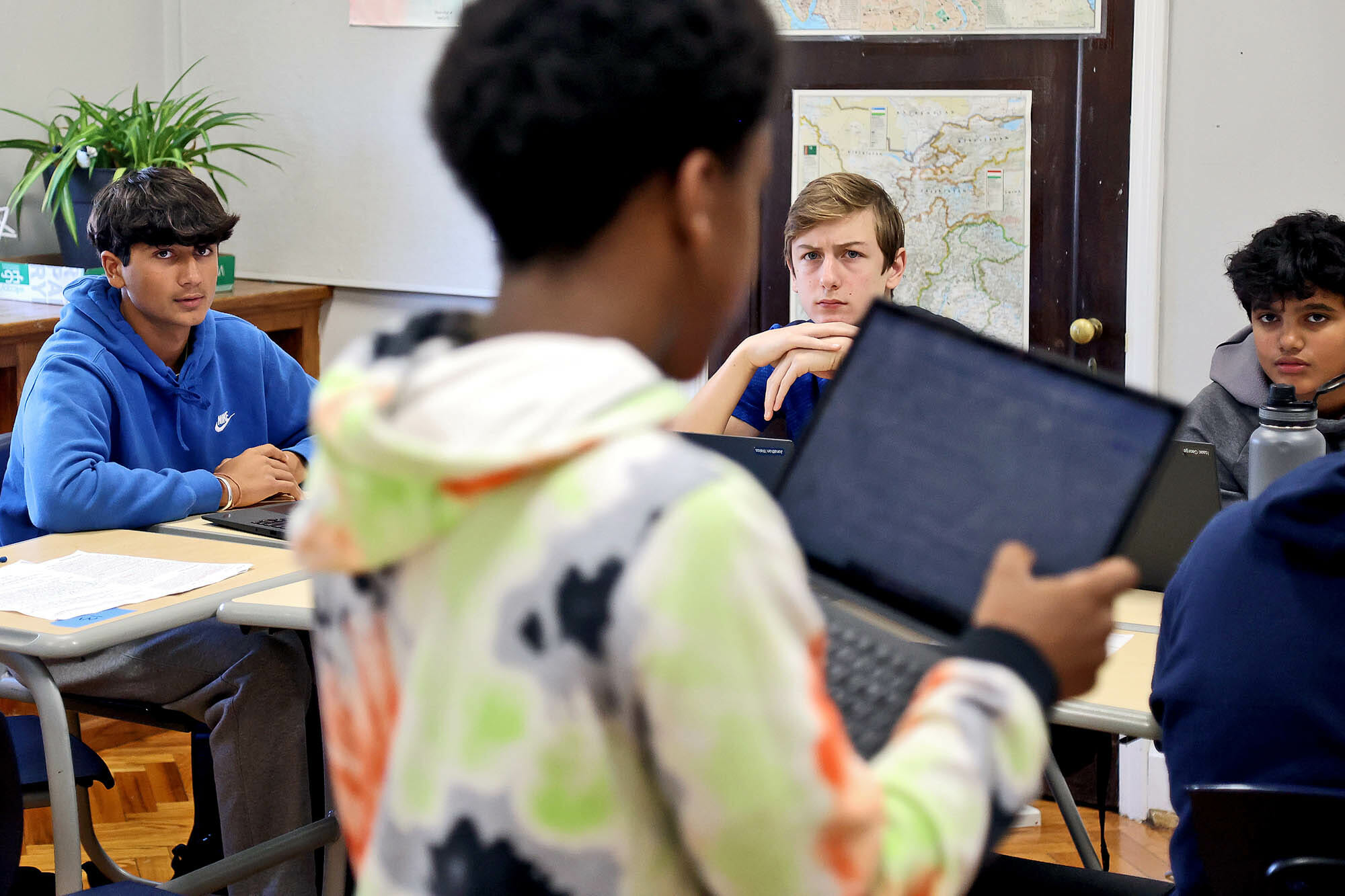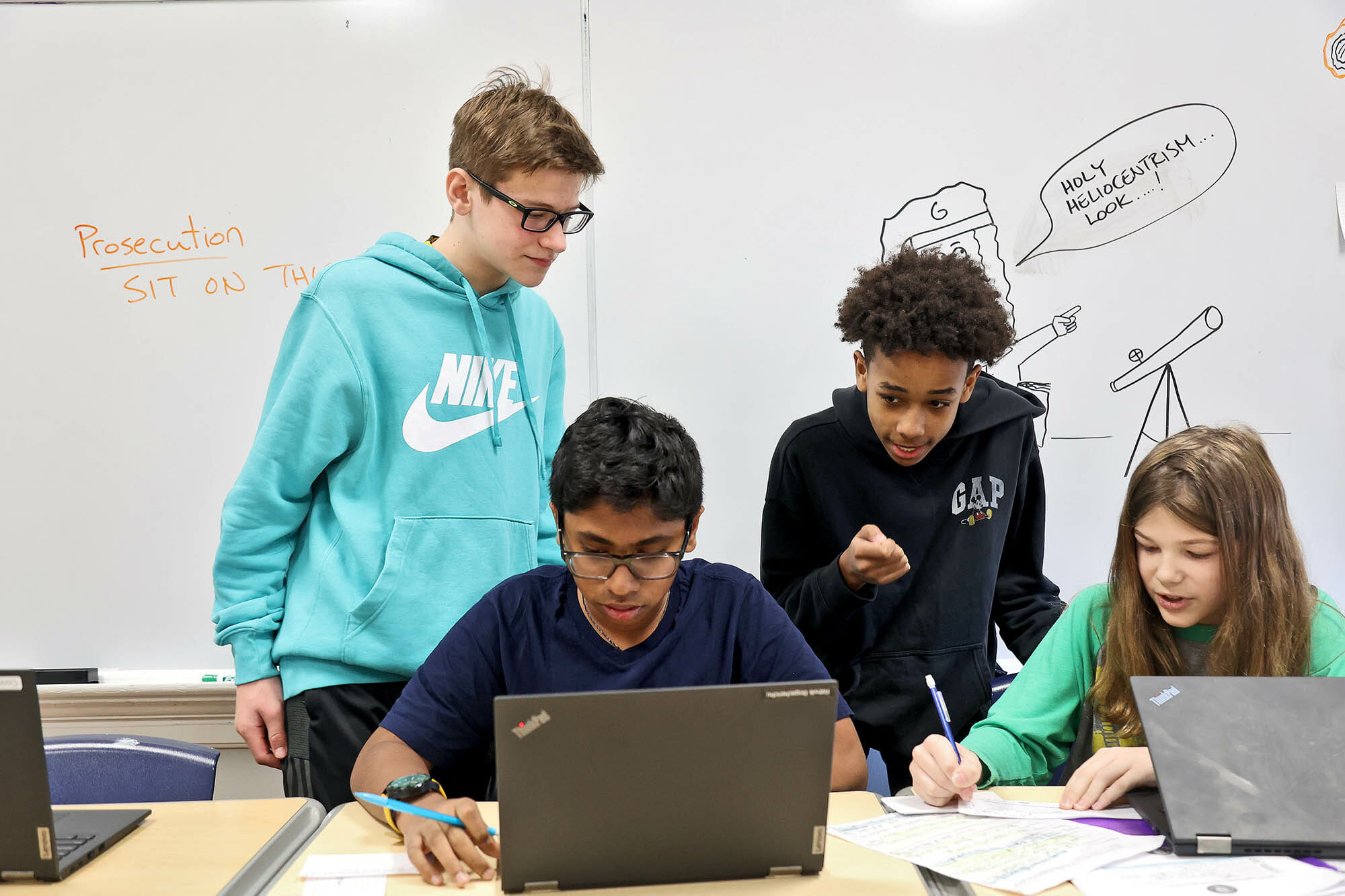Wednesday was not just any day in eighth-grade history class. On that day, students transformed into attorneys and witnesses as the class put Galileo Galilei on trial. His crime? Committing heresy against the Catholic Church by arguing that mathematician and astronomer Nicolaus Copernicus’ theory of heliocentrism, the belief that the sun was the center of the universe, was correct.
The trial was organized using the American system of justice and courtroom procedures. First, the class was divided into two teams. Team 1 consisted of the prosecution whose job it was to persuade the judge to find Galileo guilty of the accusations. The team also selected two to four witnesses while the remaining team members held positions as prosecuting attorneys.
Team 2 was the defense, which had to persuade the judge to find Galileo not guilty of the charges. This team also had two to four witnesses and the remaining team members were defense attorneys.
How did the mock trial go?
Grace Maher ’27 had two roles in the mock trial. She was a theologian serving as a witness for the prosecution of Galileo and also asked questions during the cross-examination. She really liked learning in this creative style. “I thought that the format was great; it was easy to follow, and now that I know how things will work, I think that the next [mock trial] will be even better!” Maher also took her role as a witness to heart. “My favorite part from the mock trial was when I, as a theologian, was being cross-examined. My heart was beating quite fast, however, I kept my calm and came up with great answers to the questions asked of me.”
Grant Krainik ’27 was on the cross-examination team for the prosecution, hoping to prove to the judge (Michael Fitzgerald, Middle School History Teacher) that Galileo was guilty of heresy. “We were given a packet full of all the information we would need on Galileo, and after reading it, we were assigned prosecution or defense. We were then given an organizer and two class days to prepare for the trial,” said Grant. “The first day was full of organizing the roles we would play and scouring the packet for anything we could use against Galileo. On the second day, the witnesses for each side were revealed, which helped the cross-examiners greatly. Besides that, the second day was just making sure everyone knew what they were doing. On the third day, we had our trial…it went really well. One of my favorite parts about the trial was when one of the cross-examiners found a loophole through one of the arguments and proceeded to correct the witness.”
The mock trial was a clever way to teach about a historical person, views at the time, and even law. “It was a very immersive way to learn about a famous person in history,” said Krainik. “Honestly, the whole experience was the most immersed I’ve been in a class this year, and if I were to do it again, I wouldn’t change a thing.”
What was the result of one of the class’ trials? Krainik reported, “On January 12, 2023, for C period history in Fitzgerald’s class, Galileo was pronounced innocent, but he was forbidden from publishing his book Dialogue Concerning Two Chiefly World Systems: Ptolemaic and Copernican, (a book discussing heliocentric theory, which was against what the inquisition believed), and he was to never hold, teach, or defend Copernicanism again or he would face a second trial.” In Grace’s class, the prosecution side won.
“This is all practice for a larger trial in the spring concerning a yet-to-revealed person of interest,” said Fitzgerald. Maher added, “I think that this mock trial is a wonderful and helpful learning experience by being informative and great fun! I am looking forward to the next one.”
We can’t wait to see how the eighth-grade historians will once again transform into lawyers and witnesses on behalf of notable historical figures! Case closed…for now!
